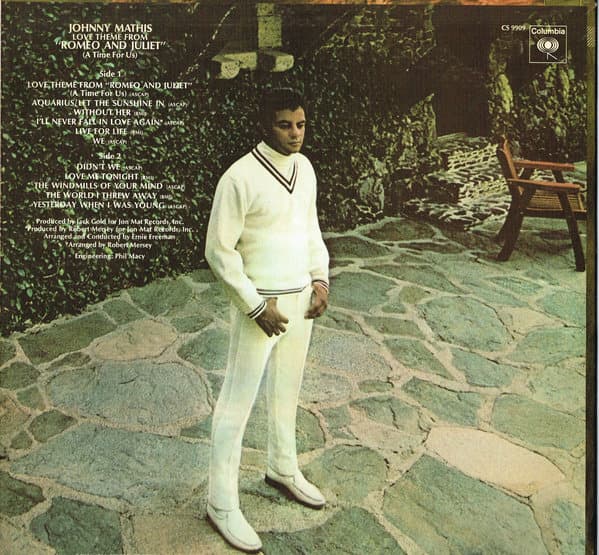
The Golden Voice of Romantic Regret
To speak of Johnny Mathis is to speak of the soundtrack of a generation—the velvet-voiced crooner who, with effortless grace, transformed simple pop songs into timeless expressions of romantic rapture and devastating heartache. His voice was, and remains, a sanctuary for emotion. And among his myriad recordings, few distill the essence of mature, reflective sorrow quite like his 1969 rendition of “Didn’t We.”
Released as a single from his album Love Theme from “Romeo and Juliet” (A Time for Us), this track was one of several superb interpretations of contemporary material that Mathis delivered in the late 1960s. While the song itself, in his hands, was not a colossal chartbuster like his earlier smashes “Chances Are” or “Misty,” it was a critically acclaimed and highly regarded album cut. The single achieved success on the Adult Contemporary side of the dial, where it was a staple, resonating deeply with an audience that valued sophisticated lyrics and impeccable vocal delivery. The parent album, Love Theme from “Romeo and Juliet” (A Time for Us), peaked at Number 21 on the Billboard Top LPs chart, a testament to Mathis’s enduring popularity as the de facto voice of American romance.
The song’s origins add a layer of pedigree that makes Mathis’s performance all the more meaningful. “Didn’t We” was written by the legendary songwriter Jimmy Webb, a man whose pen gave us complex, cinematic classics like “Wichita Lineman” and “MacArthur Park.” Webb originally wrote the tune in 1966, and it was first recorded by singer James Darren in 1967. However, the first truly notable version was released by the Irish actor Richard Harris in 1968 on his debut album, A Tramp Shining—the same album that contained his massive hit “MacArthur Park.” Webb’s sophisticated, almost melancholy style was a perfect fit for the nuanced, world-weary delivery that Mathis specialized in.
The meaning of “Didn’t We” is etched in bittersweet regret. It is a dialogue with a former lover, a gentle questioning that begins not with accusation, but with shared memory. The singer isn’t asking why they failed, but rather reminding his partner of how close they came to perfection: “This time we almost made the pieces fit, didn’t we?” The lyrics are a painful acceptance of a near-miss: “This time I had the answer right here in my hand / Then I touched it and it had turned to sand.” The song is a beautiful exploration of the melancholy space between what was and what should have been, acknowledging the sheer effort and beauty of the attempt, even in failure.
When we hear Johnny Mathis sing these words, especially now, decades later, they evoke a powerful surge of nostalgia—not just for the song itself, but for the relationships and moments of our own lives that felt so close to being perfect. His arrangement, with its lush orchestral swells conducted by Ernie Freeman, never overwhelms the intimacy of the lyric. Instead, it cradles Mathis’s voice, allowing his pristine, clear tenor to deliver the final, heart-stopping question: “Didn’t we almost make it this time?” It’s a sentiment that speaks directly to the older heart, acknowledging that even our failures are often wrapped in moments of incredible, unforgettable beauty.